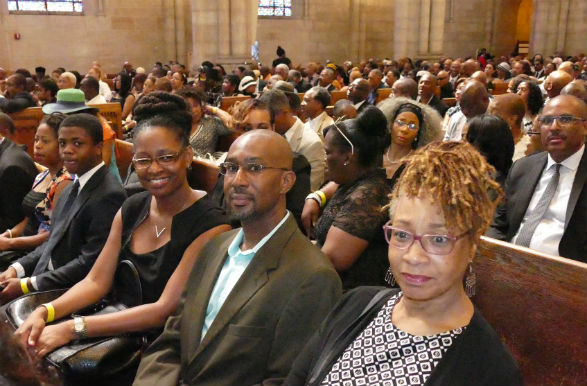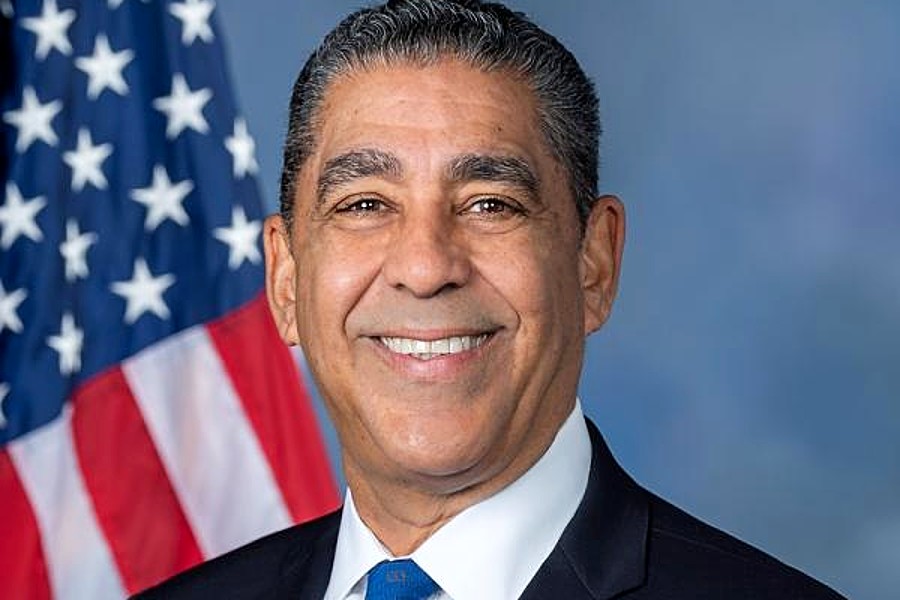 If you didn’t like a “recent election,” and you’ve been trying to get your city council in Harlem or Hollis to pay attention to some issues in your neighborhood that have been going on for a while now. Is there a dangerous intersection that desperately needs a four-way stop, and the trees and bushes at the intersection make it really hard to see oncoming traffic. You’ve written letters, but all they say is “we’ll look into it.”
If you didn’t like a “recent election,” and you’ve been trying to get your city council in Harlem or Hollis to pay attention to some issues in your neighborhood that have been going on for a while now. Is there a dangerous intersection that desperately needs a four-way stop, and the trees and bushes at the intersection make it really hard to see oncoming traffic. You’ve written letters, but all they say is “we’ll look into it.”
Here’s how you can get them to sit up and listen to us.
Do Your Homework
Bureaucratic red tape is a nightmare to navigate, but avoid the temptation to just call a general information number and rant at someone who has no control over your issue. The same applies if you’re sending letters to a general mailing address.
A few things to remember:
- Make sure you’re actually dealing with the right office or appropriate official for the issue you want addressed. In theory, sending all of your mail to the mayor or calling the mayor’s office should get your complaint to the right department, but it rarely does. If you have a problem with, for example, needing a stop sign at a nearby intersection, your local government probably has a transportation or safety official responsible for that. You may have to do some digging to get their name or contact information, but you’ll have better luck dealing with their office directly.
- Make sure you’re dealing with the appropriate level of government. This is a big one: too often people assume that an issue they have is a state problem when it’s really a county problem. Transportation issues are notorious for this: depending on the road in question and who funded its construction, your stop sign could be a state issue, not a city one. Once you get a hold of the right office or official that handles your issue, the first question to ask is whether or not this is in their purview, and if it isn’t, whose responsibility it is.
- Document your issue impeccably. Whether you’re cynical or jaded about government at all should be irrelevant here. Rely on facts, letters, photographs, laws, and examples, not opinions and grandstanding statements. Remember, you have a problem you want solved. Focus on the problem and gather as much supporting proof and as many tools as you can to help get the problem solved. Just like when you deal with a company, you’ll be in a better position if you leave your personal feelings about the entity or organization out of it—at least until the problem’s solved.
Be Professional and Understanding
The fastest way to find yourself at the back of a bureaucratic maze is to go in guns blazing, ranting about the inefficiencies of a government office, or making a show of your political opinions. You’ll get polite, curt responses, and your issue will never get resolved. We’re not saying you need to lick boots here. You should walk the middle path and approach the conversation as a negotiation. Be professional, honest, and above-board. Offer your documentation, make sure you’re talking to the right people, and make it clear you’re looking to the office or official for their help resolving the issue.
That said, don’t be afraid to press to get what you need. Let them know that if they can’t help you, you’d like them to direct you to a department that can. Get follow-up dates and commitments. Write down the names of the people you speak to and when you spoke to them. Get commitments in writing if at all possible. As with any large organization, it’s easy to get smiles and promises from one person on Monday only to be told on Wednesday that no one remembers your name or that you ever called.
Go Visit In Person
Almost every public official, from county executives and council members to Congressional representatives, have offices and local office hours where they set aside time to meet with their constituents. Call their offices, let them know that you have an issue you’d like to discuss with them, and get on their calendar. How easy this is depends on the level of government you’re dealing with and the arm of the bureaucracy you have to talk to, but it’s doable, even for offices like your Council member or Pothole Repair. Keep calling and keep checking for openings on their calendar.
If you can’t get a private audience and you want to talk to someone in person, go to the next public meeting, council session, town hall meeting, or open forum for your community. You may not even know they have them, but a search of your local government’s website should turn up a calendar of events and the next meeting or event that’s open to the public. You may have the opportunity for an informal conversation with a specific individual, but depending on the forum you may be in for a formal discussion that you should be prepared for. If you’re going to speak in front of a city or county council, bring whatever supporting documents you want to show off (and copies to give away), and get ready in advance.
It’s important to note that these public meetings—and even many private conversations—are rarely the final step in getting a real problem solved. You’ll need to follow-up, reference your conversation, check on the status of your issue, and see if there’s anything you can do to push the process along or anyone you can bring into the conversation.
Organize Your Neighbors and Amplify Your Voice
 Perhaps one of the most powerful things you can do to make sure the right arm of government listens to your concerns is to organize your friends and neighbors. We’re not talking about internet petitions (they’re largely useless and ineffective at getting real issues addressed) here.
Perhaps one of the most powerful things you can do to make sure the right arm of government listens to your concerns is to organize your friends and neighbors. We’re not talking about internet petitions (they’re largely useless and ineffective at getting real issues addressed) here.
Here are a couple of ways you can get your neighbors involved:
- Old-fashioned paper petitions with real signatures still carry a lot of weight, especially with local or state officials. As long as you’re asking for something specific and actionable that’s relevant to a community, and as long as that community is represented in the petition, you have a strong case and an even stronger platform you can use to nag a government office or official into doing what you need done.
- Use your neighbors as leverage to schedule an in-person meeting. Sometimes the fastest way to get face time with an official is to say you have a dozen people who want to talk to them about the same issue, and you’d love it if they’d come to meet everyone. You can even organize the event yourself—beg the after-hours use of a school gym or classroom in your community, or find a public space specifically for large meetings and book it. Invite the official to come and hear everyone’s concerns. If they’re reluctant to commit to a meeting, take the voices to them and ask to book time on their calendar. I’ve seen groups as small as six or seven manage to get office time with US Senators just by asking nicely.
- Do the work yourself. Sometimes the most effective way to call attention to a slow-moving government agency is to get your community involved and do the work yourself. In this case, put up a sign at the intersection warning drivers that this is a blind turn and that they should stop. It’s not an official stop sign, and you should be careful it doesn’t do more harm than good (as in, it doesn’t further obscure the view) but a neighborhood-endorsed sign and a few calls to the local paper or news media about your struggle will definitely turn some heads.
You’ll notice we didn’t suggest that you and your neighbors protest or march on City Hall. Part of it is that protests are often a last-resort sledgehammer when many community issues call for a scalpel. The rest is that there are so many legal hurdles around protesting that you really need know what you’re getting into. Long gone are the days where you and your neighbors could just converge on the mayor’s office and refuse to leave until they hear you. Depending on where you live, that tactic could work or it could end with all of you in prison. Make no mistake, peaceful protest is both effective and your civil right, but it’s not one to exercise lightly.
Take Their Job
One of the best things about getting involved in local politics is that most people don’t. While most people think state or national-level politics as an intractable mess that’s impossible to push through, local and regional governments are much more malleable. In many cases, the only reason someone holds a particular office is because no one else wants it, or because no one else has challenged the current officeholder. Consider running for office if the current officeholder isn’t willing to help you, or get familiar with whomever is the official responsible for appointing that officeholder and express your interest in the job.
Neighborhood commissioners, county council seats, even mayorship or state-level representatives are often one-person races, and in some cases go unfilled because no one wants the office. In most communities, these offices are part-time and voluntary, so it’s not like you have to quit your day job to represent your community’s interests in a larger body—you just have to commit to a meeting or two each month. Get familiar with the requirements to run for office in your community (often you need to raise signatures to support your candidacy and file some paperwork) and debate whether or not you’re willing to commit to the job. We wouldn’t suggest you run for office just to get a stop sign at your intersection, but if you’re so fed up with your local official or the office in question, there’s no reason you can’t do a better job.
Hopefully these tips and suggestions will help you get the attention of your local or regional government officials, and get the issues you and your neighbors have resolved quickly. Remember, when it comes to citizen activism and dealing with government, your best weapons are documentation, patience, and tenacity. Understand that what you want may take time, but don’t act like you have it—press, document, and hold your officials’ feet to the fire. In some cases, they may even appreciate it!
Editor’s Note: The photos used in this story does not intend to insinuate any of the individuals in the photographs.
Photo credit: by Seitu Oronde. Text by Harlem World Magazine and Lifehaker.
Become a Harlem Insider!
By submitting this form, you are consenting to receive marketing emails from: . You can revoke your consent to receive emails at any time by using the SafeUnsubscribe® link, found at the bottom of every email. Emails are serviced by Constant Contact











